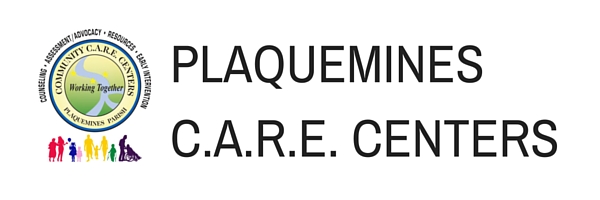Sleep Awareness Week
/March 7, 2016, marks the beginning of Sleep Awareness Week, and as such, we here at the Plaquemines Community C.A.R.E. Centers Foundation, Inc., wanted to take some time to reach out via this webpage and briefly talk a little about this absolutely integral part of our lives which we all share – sleeping!
At the risk of stating the obvious, sleep is essential to human life. Not only does it provide us the rest we need that gives our bodies time to repair and rejuvenate ourselves from the work of everyday life, but it also provides us a multitude of other physiological functions that – due to our being off in dreamland – we’re not even aware of. Sleep specialists from Harvard Medical School have set up a website full of interesting facts and research. So let’s take a look at a few, shall we?
For example, did you know that…
“Just before we fall asleep, our bodies begin to lose some heat to the environment, which some researchers believe actually helps to induce sleep. During sleep, our central set temperature is reduced by 1 to 2°F. As a result, we use less energy maintaining our body temperature. It has been hypothesized that one of the primary functions of sleep is to conserve energy in this way.”
“One of the possible functions of sleep is to give the heart a chance to rest from the constant demands of waking life. As compared to wakefulness, during non-REM sleep there is an overall reduction in heart rate and blood pressure. During REM sleep, however, there is a more pronounced variation in cardiovascular activity, with overall increases in blood pressure and heart rate.”
“For the most part, many physiological activities are reduced during sleep. For example, kidney function slows and the production of urine is decreased. However, some physiological processes may be maintained or even increased during sleep. For example, one of the greatest changes induced by sleep is an increase in the release of growth hormone. Certain physiological activities associated with digestion, cell repair, and growth are often greatest during sleep, suggesting that cell repair and growth may be an important function of sleep.”
“Varying explanations for dreaming, as well as the meanings of dreams, have been offered by philosophers and psychologists throughout history. Even with recent scientific investigations of dreaming, our dreams still remain something of a mystery. Some experts suggest that dreams represent the replay of the day’s events as a critical mechanism in the formation of memories, while others claim that the content of dreams is simply the result of random activity in the brain.”
For even more interesting facts and links to research about sleep, and the functions that it engages in, go to this website, http://healthysleep.med.harvard.edu/healthy/science/what/characteristics, where the highlights from above were found.
So given that we already know that sleeping fulfills necessary biological functions like some of those listed above, what are some ways that we can work to ensure that we’ll be able to achieve a comfortable night’s sleep that leaves us feeling rested and refreshed? Once again, let’s turn to the researchers at Harvard Medical School’s Sleep Division for some tips and tricks!
http://healthysleep.med.harvard.edu/healthy/getting/overcoming/tips
Still not getting quite as restful a night’s sleep as you’d like? Many individuals across the work struggle with sleep disorders that interfere with the ability to get a good night’s rest. Sleep disorders can include chronic insomnia (severe difficulty with falling asleep, staying asleep, or with waking too early and not being able to return to sleep), sleep apnea (a form of snoring that leads to obstruction of the airways, and thus repeated waking throughout the night, and often associated with being overweight or obese), narcolepsy (uncontrollably falling asleep), and parasomnias (night terrors, sleepwalking, or sleep eating). Do any of these sound familiar as issues that you struggle with? If so, read more at this website below, or consult your physician or sleep specialist.
http://healthysleep.med.harvard.edu/healthy/getting/treatment/an-overview-of-sleep-disorders
So, to sum things up, I hope that everyone has learned at least one or two new things from this article, and that everyone can try at least a few of the suggested tips and tricks from above, or even take the next step in contacting a physician or sleep specialist if they’re experiencing more severe sleep issues. Sweet dreams, everyone!
Joshua Bourgeois, PLPC, NCC







